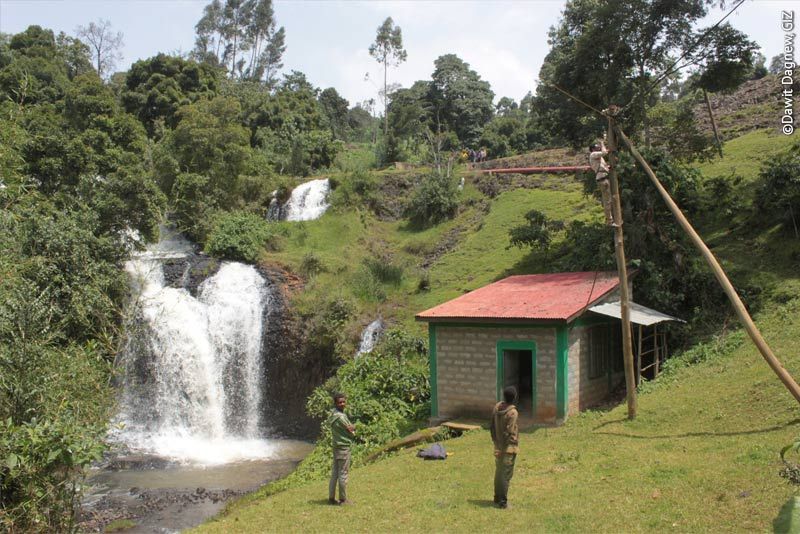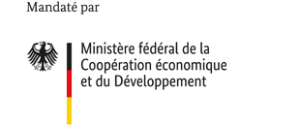Green People’s Energy for Africa – Ethiopia
Green People’s Energy aims to improve the conditions for decentralised energy supply in rural areas in selected African countries, involving both citizens and companies. To this end, we are working in nine countries across sub-Saharan Africa, including Ethiopia. In addition to our country-based measures, we support cross-national charitable projects and strengthen partnerships between players in Europe and Africa.
In Ethiopia, Green People’s Energy is going to support, amongst others, the training of professionals in the renewable energy sector through practice- and market-oriented trainings. The project will also promote the productive use of energy in communities that have received electrification through renewable energy sources. Furthermore, GBE in Ethiopia will make use of the strong standing of agricultural cooperatives in the country while working on the establishment and regulation of electricity cooperatives. The persisting need of foreign investment in the still nascent but innovative renewable energy sector is going to be met by conducting business development trainings and match-making of promising business cases with international financers.
Did you know that…?
…in spite of Ethiopia’s rapid economic growth, 13 million households still do not have access to electricity?
… Ethiopia’s National Electrification Plan 2.0 foresees it will provide 35% of Ethiopia’s households with off-grid electricity supply by 2025?
…Ethiopia has a successful, historically grown cooperative system in place, with more than 80.000 mostly agricultural cooperatives registered?
… the Ethiopian Government plans to develop more than 250 mini-grid sites in rural Ethiopia, that are in parts planned to be managed by cooperatives?
How we work
To achieve results more efficiently, we make use of successful approaches and implementation structures of already existing projects. In Ethiopia, the country project of “Green People’s Energy” implements its activities in close cooperation with the in-country activities of the Energising Development (EnDev) global programme, as well as with other multi- and bilateral projects in the energy, vocational training and agricultural sector.
Furthermore, the country project commissions the expertise from European support initiatives such as Get.transform and Get.invest to enable sector transformation and facilitate third-party financing for innovative renewable energy projects.
Green People’s Energy Ethiopia develops partnerships and cooperation structures on the national, regional and local levels, ensuring consolidated and effective implementation on all levels.
Practical Experience
Isolated mini-grids in remote rural communities can only realize the full set of benefits if the electricity gained from solar or hydropower is used for productive purposes to diversify livelihoods and generate income.
Green People’s Energy Ethiopia supports communities of already existing micro-hydropower mini-grid sites in identifying small-scale business opportunities that arise from the use of clean energy. These opportunities may encompass milling and other kinds of agricultural product refinement, as well as services such as hairdressing, movie screening or cooling of drinks and foods.
At several of these mini-grid sites, experts commissioned by the project are currently undertaking a detailed business opportunities identification exercise with potential productive users. As a next step, the project will develop together with the identified entrepreneurs some simple and contextually adapted business and financing plans. This activity goes along with advice on what electric appliances best suit needs, and where these can be purchased. Productive users will be linked with micro-finance institutions. But if found inevitable, the project will provide limited subsidies to selected purchases of material to help the businesses getting started. Throughout all the above activities, particular attention will be given to female entrepreneurs in order to enable them to increase their income and diversify their livelihoods.



